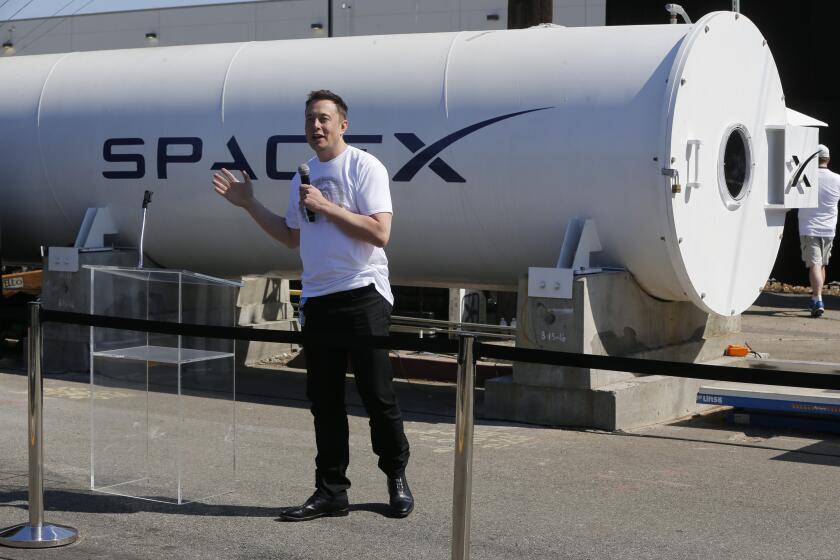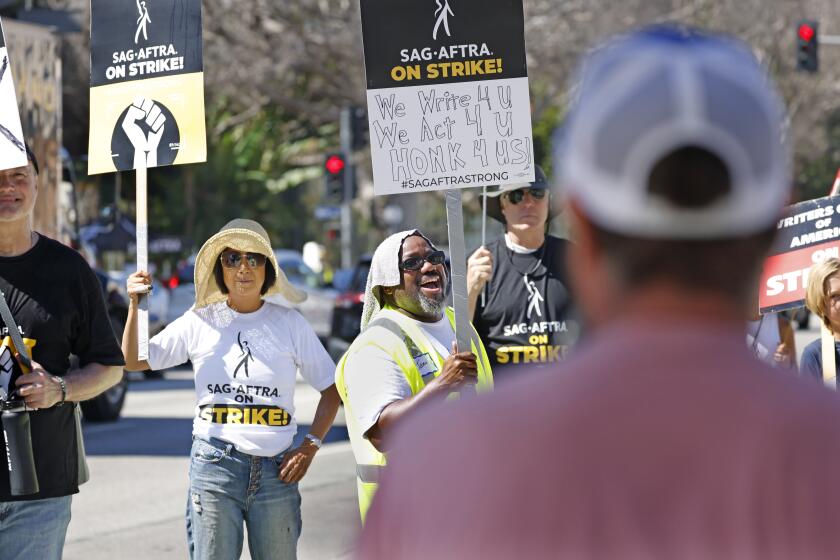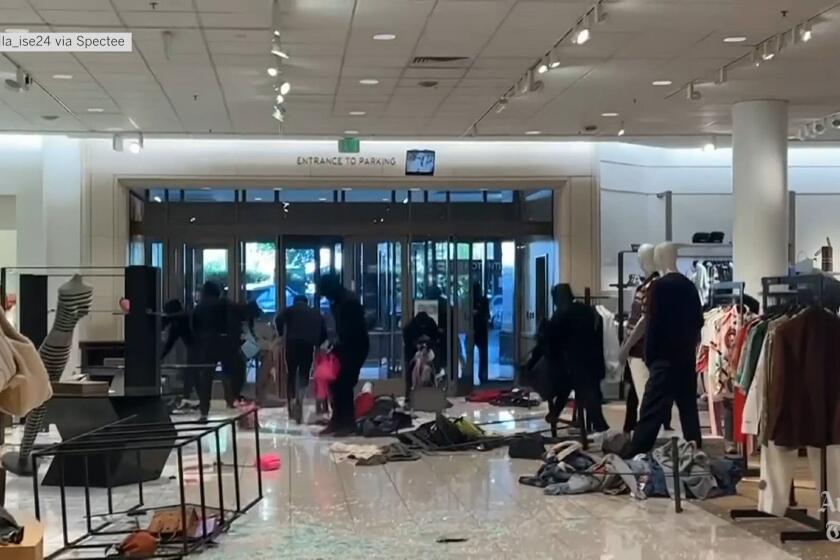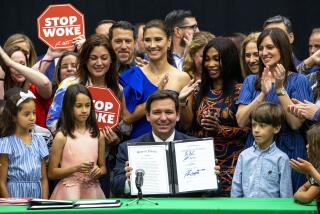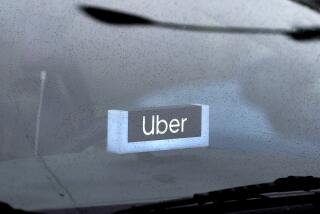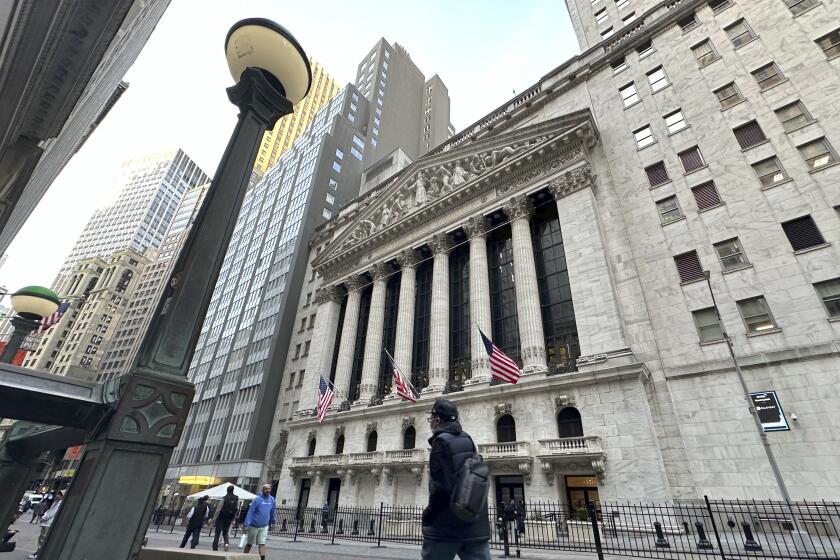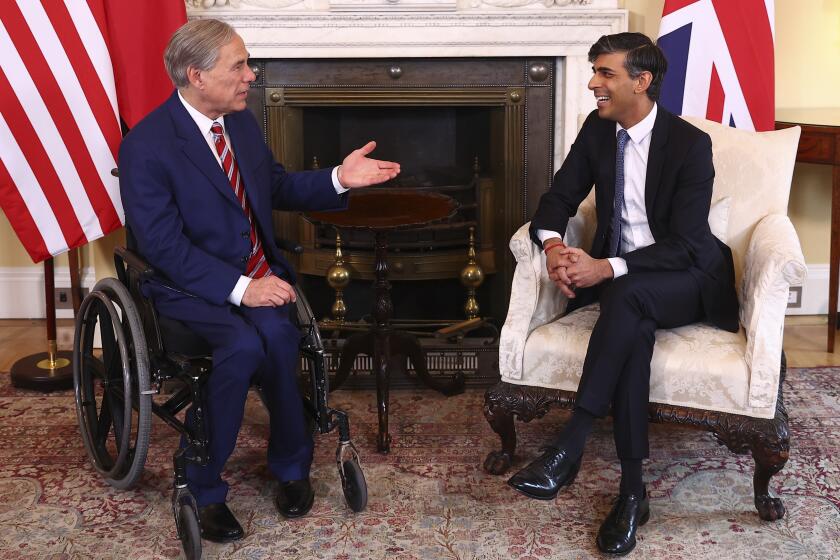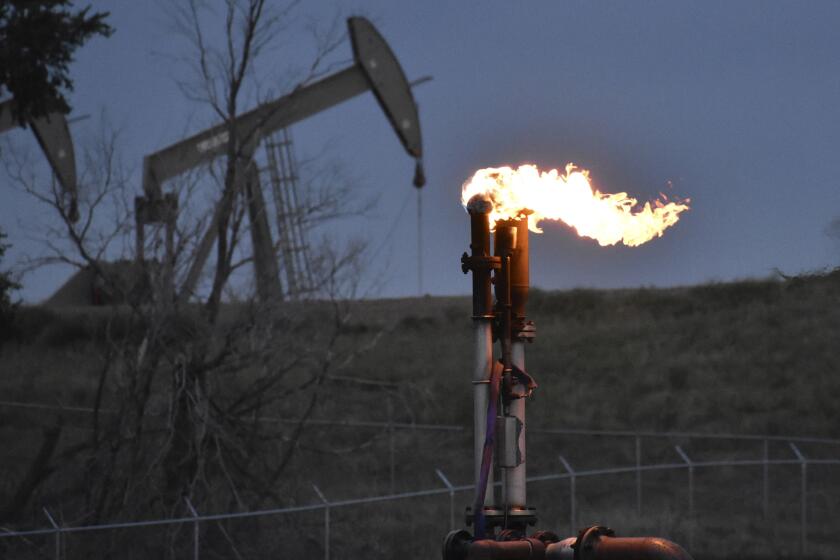Column: A Trump judge eviscerates a pro-worker regulation at the request of big employers

The Biden administration’s support of worker rights and union organizing has become a byword.
President Biden has restored the National Labor Relations Board to its traditional role as protector of collective bargaining rights. He walked the United Auto Workers picket line during its ultimately successful contract negotiations with the Big Three automakers.
He has nominated and renominated the outstanding worker advocate Julie Su as secretary of Labor. And he swept a gaggle of Trump-appointed union-busters and anti-union ideologues out of a key federal agency responsible for ruling on disputes involving government union contracts.
As major companies have consciously invested in building brands...as the cornerstone of their business strategy, they have also shed their role as the direct employer of the people responsible for providing their products and services.
— David Weil, “The Fissured Workplace”
But now he has run up against a brick wall of hard-right anti-union ideology put in place by his predecessor: another Trump-appointed ultra-partisan federal judge using his perch in an obscure courthouse to make policy for the entire nation.
We’re talking about J. Campbell Barker of the U.S. District Court of Tyler, Texas. Last week Barker, ruling in a lawsuit brought by the U.S. Chamber of Commerce and 12 other business lobbies, invalidated an NLRB rule aimed at broadening the standard by which big corporations could be held jointly responsible for the welfare and unionization rights of workers employed by their franchisees.
Get the latest from Michael Hiltzik
Commentary on economics and more from a Pulitzer Prize winner.
You may occasionally receive promotional content from the Los Angeles Times.
Barker was appointed by Trump in 2019 after a career as a Texas state lawyer writing briefs to restrict voting rights and LGBTQ+ rights, supporting Trump’s travel ban on Muslim-majority nations and attacking access to contraceptives and abortion.
On March 8, he ruled that the NLRB’s joint-employer regulation, issued in October, was so broad that it would “treat virtually every entity that contracts for labor as a joint employer.”
Many workers whose wages or workplace conditions were effectively dictated by big companies that fobbed their responsibilities onto franchise owners would consider that anything but a drawback.
The NLRB is certain to appeal Barker’s decision, probably to the New Orleans-based 5th Circuit Court of Appeals, which has set its own standard for far-right judicial overreach. The board had earlier argued that Barker shouldn’t have taken the lawsuit in the first place, because by law NLRB final rules can be appealed only to the federal appeals court in the District of Columbia. Barker rejected that argument.
The NLRB hit Elon Musk’s SpaceX with a raft of labor law charges. A day later, he called the board “unconstitutional” in a lawsuit. Would the Supreme Court side with him?
Big business has been fighting efforts to broaden legal interpretations of joint-employer status for decades. The plaintiffs in this lawsuit included lobbies for builders, restaurants, hotels and convenience stores.
Many of them base their business models on their ability to control workplace conditions from afar while pushing legal liability for labor violations onto franchise owners, whom they often describe (inaccurately) as small mom-and-pop operations just scraping by.
Among the plaintiffs is the Chamber of Commerce of Longview, Texas. Longview is a small city in the east Texas oil patch; presumably its chamber was recruited because the plaintiffs figured that its presence would give them standing to sue in the federal district court in Tyler, which has two judges, both appointed by Donald Trump, including Barker. They got their wish.
Another plaintiff is the Coalition for a Democratic Workplace. You might suppose that an organization bearing that name represents the whole panoply of business stakeholders, from fast-food workers to corporate employers, but no.
“Democratic” here means much the same thing as it did when “German Democratic Republic” signified a Communist dictatorship in East Germany, which was anything but a democratic workers’ paradise. The coalition comprises 600 employer groups “joined by their mutual concern over regulatory overreach by the National Labor Relations Board.”
Now let’s turn to the lawsuit itself. If you surmise that its opening brief, filed on Nov. 9, bristled with disinformation, you would be right.
The brief stated that the NLRB “rammed” the rule changes through on the claim that “the 90-year-old National Labor Relations Act has been misinterpreted for most of its existence.” (Actually, the board is only 88 years old.)
A couple of points here. First, it’s a little unclear what the plaintiffs meant by “ramming through” the new rule. The NLRB first proposed the rule in September 2022, and didn’t promulgate it until 13 months later. In the interim it put the proposal out for public comments, of which it received 13,000.
The UAW’s great new contracts with GM, Stellantis and Ford show that union solidarity and concrete goals bring major victories for workers for the first time in decades.
The plaintiffs implied that the NLRB’s joint-employer rules have been static since the board’s founding in 1935. Nothing could be further from the truth.
The standard came before the Supreme Court more than once, starting in 1964. The board amended it, sometimes narrowing and sometimes expanding its definition of joint employer, in 1982, 2002, 2007, 2018 and 2020, before the latest version was issued in October.
The plaintiffs wring their hands over the fact that the board reversed a rule that it “promulgated just three years ago.” You might ask yourself: Hmm, what changed in Washington between 2020 and 2023?
If you guessed that the Trump administration was turned out of office and replaced by the Biden administration, well done.
The latter gave the NLRB a Democratic majority, just as the former had given it a Republican majority. Presidents have the power to do that and most have done so when they were succeeding a president of the other party. So when the plaintiffs depict the board as an unchanging entity that reversed itself, they’re lying, possibly in the hope that a judge will be too stupid to notice their sleight of hand. Or too partisan to care.
But they can’t avoid explicitly stating their true concern with the joint-employer rule: The rule threatens employers with “billions of dollars in liability and costs.”
Defining joint-employer responsibilities has become more important in recent decades as more businesses turn to the franchise model, which gives fast-food, hotel and retailing behemoths plausible deniability over how their front-line workers are treated and paid.
“As major companies have consciously invested in building brands ... as the cornerstone of their business strategy,” labor expert David Weil wrote in his 2014 book “The Fissured Workplace,” “they have also shed their role as the direct employer of the people responsible for providing their products and services.” The trend, Weil wrote, encompasses hotel maids, cable installers, commercial janitors and merchandise pickers in Amazon warehouses — all are actually on the payroll of third-party employment firms.
Column: It’s a happy Labor Day indeed after NLRB cracks down on employer sabotage of union elections
After nearly 30 years, the National Labor Relations Board restores a policy that truly punishes employers for unfair labor practices.
(By the way, Biden nominated Weil in 2021 to a high-level position at the Department of Labor, but the nomination was killed by opposition from Republicans and Big Business.)
In recent years, the principal target of joint-employer cases at the NLRB has been McDonald’s. That’s unsurprising, since with more than $119 billion in overall international sales it’s the largest franchisor in the world.
The Obama-era NLRB brought a massive case against the company and 29 franchisees in 2014, which turned into what was regarded as the biggest case the board ever instituted, and the longest. The main issue was whether the company had participated in — in fact, helped to run — a nationwide attack on the Fight for $15 union campaign for a higher minimum wage at its restaurants.
Then-NLRB general counsel Richard Griffin alleged at the outset that the franchisees fired, suspended, cut work hours, threatened, spied on and interrogated employees involved in the union campaign, all of which he interpreted as illegal responses to union organizing.
Administrative Law Judge Lauren Esposito cited evidence that the anti-union response was “formulated and implemented” from McDonald’s headquarters in Chicago and that the company provided franchisees with “suggested policies” and legal training in labor relations — so much so that the company was properly regarded as the franchise workers’ joint employer.
By the time Esposito prepared to rule, Trump was president. He replaced Griffin with Peter Robb, whose record as an anti-labor lawyer was well nigh unassailable and whose hostility to the joint-employer rule was manifest. Before Esposito could rule, Robb settled the cases against the franchisees by ordering back pay for the workers who were fired or had their hours cut. But the settlements didn’t involve McDonald’s Corp., which therefore skated on the joint-employer issue.
Home Depot’s ex-CEO complained that retail theft is making the U.S. a ‘lawless society,’ but his company just paid millions to settle charges that it lawlessly cheated workers of pay.
Esposito rejected the settlements, but she was overruled by the NLRB’s new, Republican majority. The sole dissent came from Lauren McFerran, an Obama appointee who was the only Democrat then on the board.
“A finding of joint-employer status,” she wrote, “would have important collateral consequences for McDonald’s, in both unfair labor practice proceedings involving its franchisees and ... if workers employed at McDonald’s franchisees sought to organize (that is, unionize).”
In other words, the Trump NLRB moved heaven and earth to keep McDonald’s from being declared a joint employer.
McFerran is now chair of the NLRB, presiding over a 3-1 Democratic majority. (One seat on the five-member board is vacant.)
The NLRB’s joint-employer rule would bring millions of workers — typically low-wage workers without health or retirement benefits and virtually no job security — under the umbrella of their well-heeled ultimate employers. It’s possible, if not certain, that they would see an improvement in their working lives, through better wages and more opportunity to unionize.
Even big franchisees or labor brokers don’t have to care about their public image — most customers don’t even know they exist. But McDonald’s, Marriott, Walmart and Amazon have a lot to lose in public esteem by getting tagged as an abuser of workers.
If the NLRB had its way, they would no longer be getting away with shedding their responsibilities. Let’s hope that Judge Barker’s ruling is a temporary obstacle to making the world work better.
More to Read
Get the latest from Michael Hiltzik
Commentary on economics and more from a Pulitzer Prize winner.
You may occasionally receive promotional content from the Los Angeles Times.
